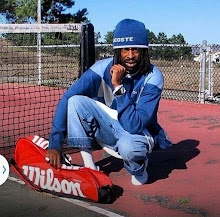24 lögner i sekunden
Hans Isakssons film- och TV-analyser är antagligen de bästa av sitt slag i Sverige. I större mändger blir dock hans gammelsocialistiska driv ganska tröttande (han tackar Mao Zedong, av alla personer, i förordet). Men hans resonemang har den förtjänsten att de ofta är både träffande och djupgående, och även om man inte kan stämma in i allt, så skärps ens eget tänkande betydligt under och efter läsningen. Och han har gott om humor. Att det sociala bereds så mycket plats på bekostnad av billigt psykologiserande och filmtekniskt mumbojumbo är uppfriskande, åtminstone för någon som likt jag står oförstående inför de hantverksmässiga mysterierna och cineatisk terminologi, och främst tänker på film mer som gladiatorspel och lägereldsberättande.
Isaksson har alltså medvetenhetens fnask i korshåret. Höjdpunkter är bl a Om gangster på bio (en analys i samma anda som det inledande Bertold Brecht-citatet: "Den borgerliga kritikern har alltid haft svårt att se småborgaren i gangstern. Jag tror det kommer sig av att de har så svårt att se gangstern i småborgaren"), hyllningarna till Ken Loachs Raining Stones och Riff-raff ("De - vi - har blivit invandrare i eget samhälle, tillfälliga gäster i vad som bort vara det egna hemmet"), och Något om TV och idrott i vår tid, varur vi gärna plockar två intressant citat.
Isaksson har alltså medvetenhetens fnask i korshåret. Höjdpunkter är bl a Om gangster på bio (en analys i samma anda som det inledande Bertold Brecht-citatet: "Den borgerliga kritikern har alltid haft svårt att se småborgaren i gangstern. Jag tror det kommer sig av att de har så svårt att se gangstern i småborgaren"), hyllningarna till Ken Loachs Raining Stones och Riff-raff ("De - vi - har blivit invandrare i eget samhälle, tillfälliga gäster i vad som bort vara det egna hemmet"), och Något om TV och idrott i vår tid, varur vi gärna plockar två intressant citat.
"Dåtidens överhet var mycket medveten om att man genom att organisera industrisamhällets spänningar och våldsutbrott, ge dem fasta regler och överföra dem i symbolhandlingar på för ändamålet färdigställda arenor skulle kunna förskaffa sig ett modernt motmedel mot upprorsstämningar bland massorna."Sammanfattningsvis: - Oavsett om det handlar om Kubrick, Bunuel, Schindler's List, Åsa-Nisse eller Leif Loket Olsson, är det mesta i 24 lögner i sekunden intressant och ytterst välskrivet. Den rekommenderas till alla som suttit framför dumburken någon gång eller kanske t o m har haft oturen att lurats med på bio.
"Lagidrotter där, liksom i football, de naturliga avbrotten är talrika, t ex ishockey och baseboll, har haft lätt att TV-anpassa sig. En av orsakerna till att den europeiska fotbollen haft så svårt att slå igenom i USA uppges vara dess relativt långa spelsekvenser som försvårar marknadsanpassningen och verkar nerkylande på sponsorer."





